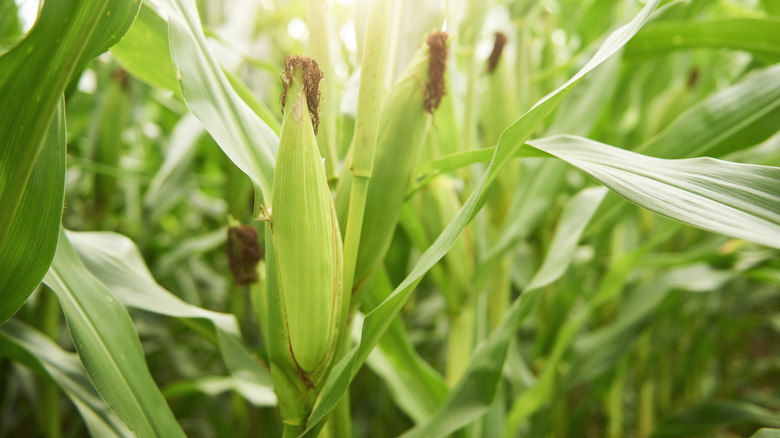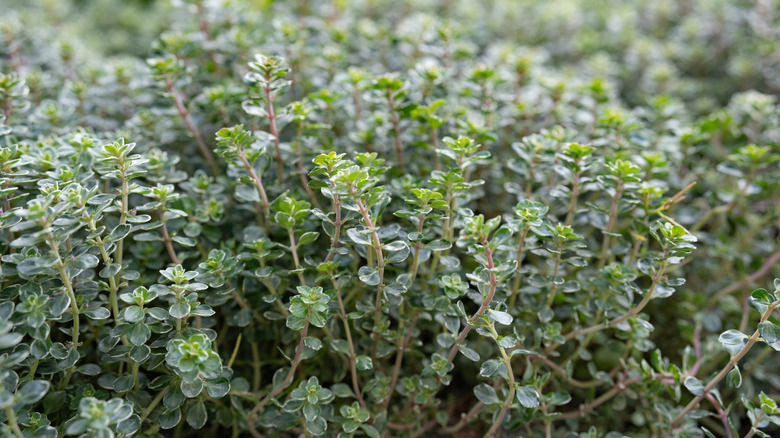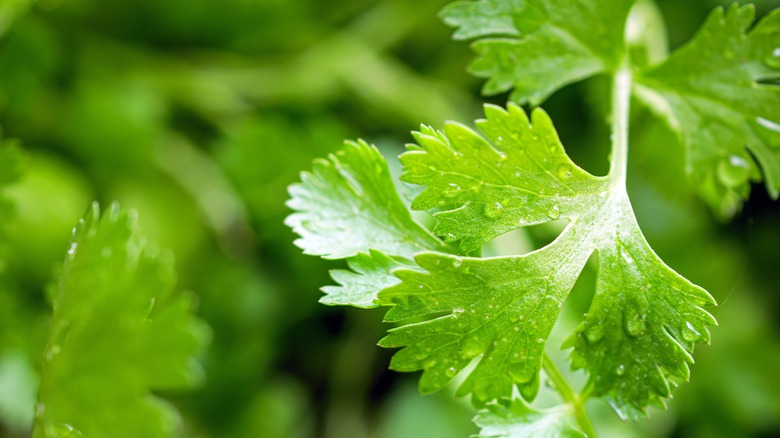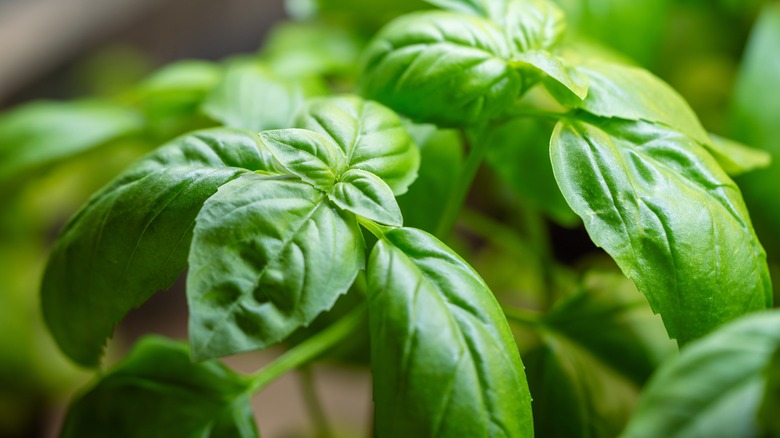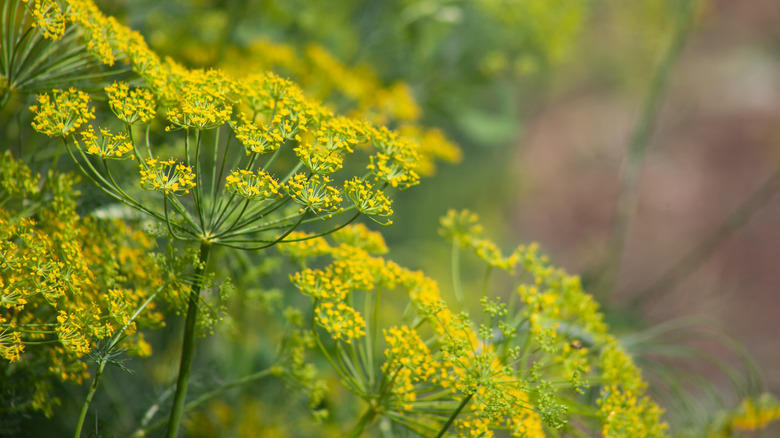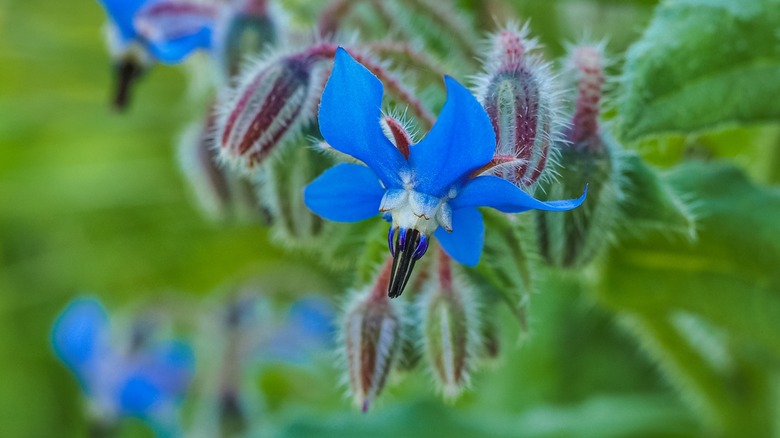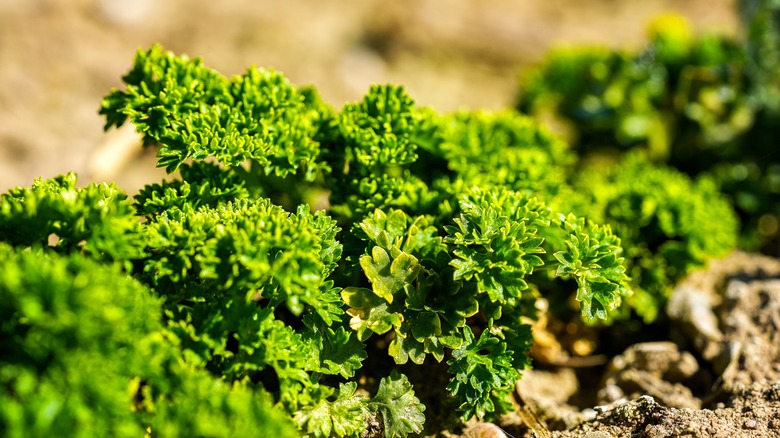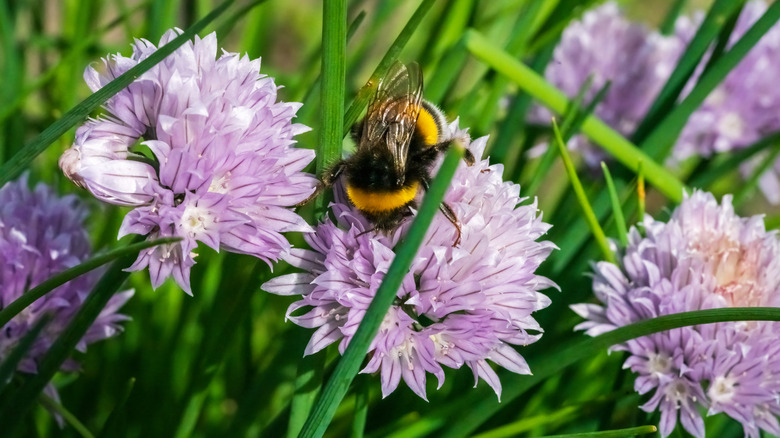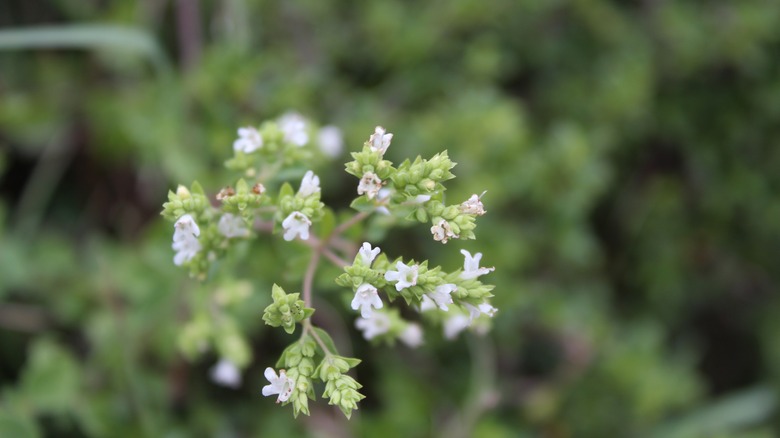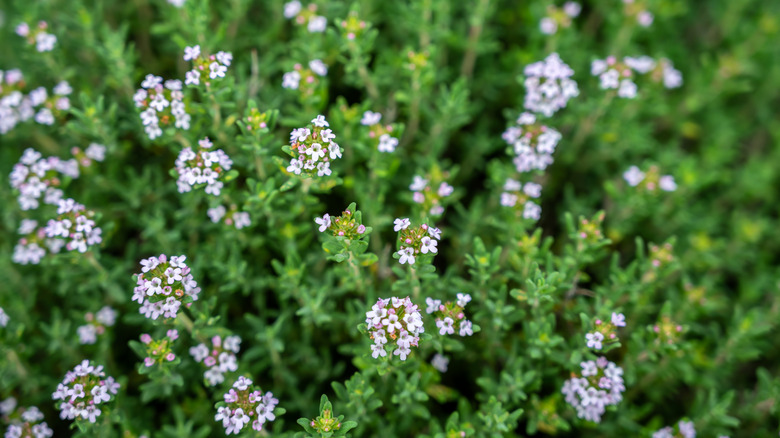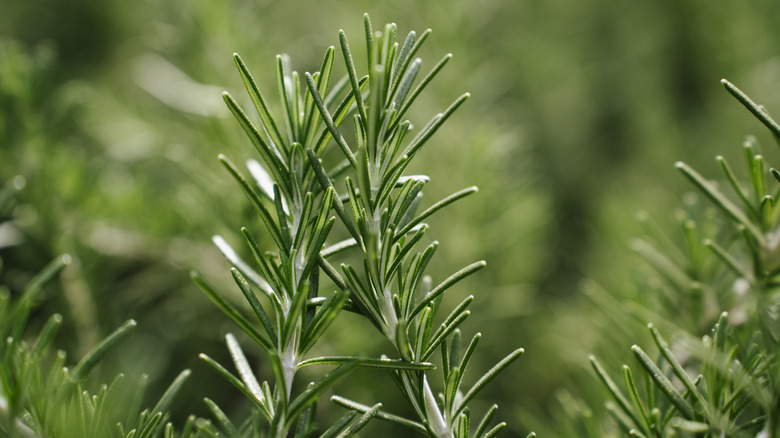Grow These Companion Herbs With Corn For The Most Successful Harvest
Companion planting can benefit your garden by growing plants near others that can enrich. As a gardening practice, it helps with space planning, soil improvement, and pest control. As you look for companion plants for your corn for a successful harvest this year, consider the herb family. While cucumber and other veggies are popular companion plants for corn, there are many standout herbs that make ideal companions as well. They can help in a variety of ways, including attracting beneficial pests, repelling damaging pests, and even improving overall growing conditions.
Corn is typically easy to grow, but like all vegetables, this crop can come with its challenges. It may suffer from being eaten by wildlife, poor nutrition, reduced nitrogen, or not enough moisture. Introducing companion herbs in the garden with your corn may mean a golden harvest, but only if you plant the right types. Some herbs, such as fennel, are actually detrimental to corn. However, popular kitchen herbs like thyme and basil offer a valuable boost to your corn's growth. Before deciding to plant an epic garden with your corn, you should also check carefully for compatibility among the herbs. Some plants, such as thyme and cilantro can be companion plants to corn separately, but shouldn't be planted with each other because they have different nutrient needs. With that in mind, here are the herbs that will help you get a rich, full corn harvest this year.
Thyme
Corn is susceptible to the corn earworm. In the larval stage, these pests often feed on the ear of the corn as well as the leaves and tassels. Planting thyme (thymus vulgaris) near corn may help stave off an infestation. Thyme has wide use as a natural repellent for a variety of insects. When growing, thyme can emit aromatic compounds that deter various pests, including the corn earworm, away from your growing crop. Thyme also attracts parasitic insects such as the lacewing, which frequently eat aphids and other damaging insects while in their immature stage.
Cilantro
Cilantro (Coriandrum sativum) is a popular companion plant that works with many plants, but don't overlook how it can benefit your corn. The cilantro aroma many of us love has an opposite effect on pests, especially aphids and spider mites, repelling them away. If that's not enough, cilantro also attracts beneficial lacewings as an even bigger deterrent for these insects. Unlike other herbs like sage, cilantro isn't a heavy feeder, so it pairs well with corn in the garden bed as well as does it in a plate of elote.
Basil
When paired with corn, basil (Ocimum basilicum) is another one of the plants that work as natural pest control for your golden crop. Basil's aromatic scent keeps some aphid species away, so your corn can flourish. When it flowers, basil draws in beneficial insects, like parasitic wasps and lacewings. These insects regularly eat aphids, reducing the chance of them ruining your corn. It's extraordinarily easy to grow, needing only six to eight hours of sun and well-drained soil. Once your plant is growing strong, snip a few leaves, and you can make a fantastic pesto sauce with it.
Dill
Growing dill (Anethum graveolens) with corn offers a great way to introduce natural pest control. Dill attracts flower, or hover, flies. The larvae of these beneficial insects can eat aphids, making them a great weapon in fighting off aphid infestations of your corn. The herb is also a favorite of ladybugs and parasitic wasps, two common aphid predators. Dill is very easy to grow, requiring only well-drained, slightly acidic soil and six to eight hours of sun daily.
Chamomile
Chamomile (Matricaria chamomilla) isn't only for a cup of delicious bedtime tea, it's also a less-popular corn companion plant. The herb's benefits include that it attracts ladybugs and hover flies to dine on aphids while also welcoming pollinators. The increased visits can help your plants thrive throughout their growing season. As folklore has dubbed it the "plant's physician," chamomile also features natural antifungal and antibacterial properties, so some gardeners add it to their garden to guard against fungus and blight.
Borage
Borage (Borago officinalis), also known as starflower, is a pollinator magnet for both bumblebees and honeybees who love its star-shaped blue flowers. It's frequently planted near vegetable gardens for improved crops, and you can do the same with your corn. It also helps your corn avoid invasion from garden pests such as corn worms, while attracting predators like lacewings and ladybugs. Though an annual, borage self-seeds, so you can expect its vibrant return each corn season. Borage thrives even in poor soil, though it should have good drainage and sun to partial shade for the best growing conditions.
Parsley
Corn pests like corn earworms, cutworms, and armyworms have met their match with parsley (Petroselinum crispum). The grassy-smelling herb attracts predators of these worms, namely parasitic wasps and tachinid flies, which helps keep your corn safe from destruction. It's not a one-sided relationship either, as the tall growing stalks of corn offer good shade for parsley during hotter days. The thick-growing parsley can also help your garden overall, as it suppresses weed growth that could affect your plants. For the best plants, plant parsley in a spot with six to eight hours of sun daily and well-drained soil.
Chives
Don't skip chives (Allium schoenoprasum) when you're deciding what herbs to plant with corn. The valuable perennial has a long growing season and grows from the same roots each year, offering a consistent boost to your corn crops. Chives are also believed to repel Japanese beetles. Though there isn't scientific research attesting to this, it might still be worth planting them since chives are known to deter aphids. Super easy to grow and self-seeding, chives flourish with full sun and soil with adequate drainage. They also attract pollinating bees, which can benefit your garden overall.
Marjoram
Marjoram (Origanum majorana) might not be as popular as other herbs, but this oregano relative is far less competitive in the garden near corn. The flowers attract hoverflies, who will eat aphids and other insects. Marjoram is also a huge draw for buzzing bees, and one study found that the herb was the most attractive to the little pollinators. Ensure you have very well-drained soil, or your marjoram may suffer. Be cautious if growing with pets, as marjoram is toxic for cats and dogs.
Summer savory
Summer savory (Satureja hortensis), has been used as a companion plant to repel insects from beans and onions, but it also offers surprising benefits when growing corn. Researchers studying the relationship between sweet corn and summer savory found that the herb benefited the corn with weed suppression and a higher yield. Easy to grow, it can do well in good to poor soil, though well-drained is best. Give summer savory at least six hours of sun daily. Once it flowers with small pink or white blooms, you'll have a pollinator haven. Bees, bats, and butterflies frequently flock to it.
Rosemary
Another uncommon companion herb for corn, rosemary (Salvia rosmarinus) can also offer good pest control properties. It helps repel slugs and snails that would attack your corn when used as a border plant. Perfect for near a vegetable garden, it welcomes valuable pollinators such as bees and hummingbirds, with blooms in blue, purple, or white. The enjoyable aromatic scent that rosemary offers your garden will also mask scents that may attract flies and mosquitoes. Pest concerns of rosemary are minor, but it needs full sun and dry to medium soil.
